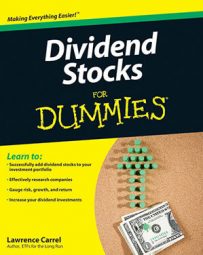A Real Estate Investment Trusts (REIT) that pays a sizeable dividend and has a solid cash flow isn’t a sure thing, but it’s certainly worthy of consideration when you're looking to buy new stocks. When you buy a REIT, you’re becoming more of a real estate investor than a dividend stock investor, and such a move carries both advantages and disadvantages.
Advantages of Buying Stock in an REIT
A REIT offers several advantages to both stock and real estate investors:
REITs must pay out at least 90 percent of their income as dividends. This requirement is the number one reason why investors buy REITs. Management can raise the payout to more than 90 percent but, by law, can’t lower it below 90 percent. In other words, management can’t decide to slash the dividend payment.
Large payouts result in higher-than-average yields. For dividend investors, high yield is a primary consideration.
REITs help diversify an investment portfolio. Because real estate values don’t generally correlate to stock prices, stock prices and real estate values can move together or in completely opposite directions. Unless a real estate slump triggers a financial crisis or vice versa, a portfolio that contains both stock and real estate holdings may provide some protection over slumps that affect only one or the other.
REITs help diversify a real estate portfolio. Money pooled from many investors allows the trust to purchase more buildings than an individual would be able to buy alone. If you buy real estate on your own, you may lock up all your money in one building. A REIT gives you a piece of many different properties; that way, one underperforming building won’t ruin your portfolio.
You can own real estate without the costs and hassles associated with real estate investing. You don’t have to find and research properties — the REIT’s managers do that for you.
REITs own physical assets with a value all their own that can appreciate over time. As an investor, you own tangible assets that tend to rise in value over the long term.
REITs are more liquid than typical real estate investments. Instead of selling the property to cash out, you simply sell your shares.
Disadvantages of Buying Stock in an REIT
Because REITs allow you to invest in real estate, they carry risks associated with real estate investing as well as stock investing, including the following:
Falling occupancy rates and increasing vacancies hurt revenues.
Share prices can drop when property values fall.
Share prices can fall with the broader stock market based on supply and demand of shares.
High dividend payouts for REITs force management to take on debt to expand real estate holdings.
Rising interest rates hurt profitability.
Not all REIT dividends quality for 15-percent tax rates. Some are taxed as ordinary income.
Prior to investing in a REIT, consult a tax advisor to determine the net effect on your tax bill.

